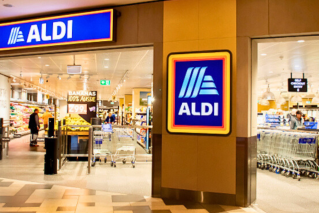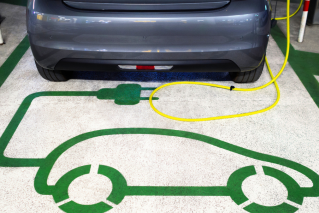‘Serious financial stress’: Typical mortgage bills tipped to jump $792 by year’s end

Home owners are being warned to brace for their third interest rate hike in as many months on Tuesday as the Reserve Bank tries to clamp down on rapidly rising prices.
Economists expect the central bank to raise the official cash rate target by half a percentage point to 1.35 per cent – the highest it has been since May 2019.
If passed on in full by the banks, a rate hike of that magnitude would add another $144 to the monthly repayments on a typical mortgage of $500,000 – taking the total increase on a mortgage of this size to $350 since the RBA started lifting rates in May.
It’s all in the name of trying to get soaring inflation under control, amid warnings that price hikes for essentials like petrol, groceries and energy will only worsen in coming months.
But as the effect of rising rates spreads to the property market, economists warn that many households are now being hit with a double whammy of rising bills and falling equity.
“It’s a very challenging situation for households, particularly lower-income ones, where budgets are already quite tight,” Indeed APAC economist Callam Pickering said.
“These pressures are only going to get worse over the next 12 months.”
Rate market moves up
Mortgage stress is already becoming more acute for some, with 86 per cent of banks passing on the past two rate hikes, according to the latest Canstar market survey.
Banks have lifted home loan rates by an average of just 0.26 percentage points since May – compared to a total RBA cash rate hike of 0.75 percentage points.
But market variable rates were rising before then and have actually gone up by 0.58 percentage points since January.
That’s taken the average variable rate to 3.65 per cent, adding about $124 to the monthly repayments on a $400,000 owner-occupier loan paying principal and interest, according to recent Mozo analysis.
And the cheapest variable rate has risen even faster, up 0.66 percentage points since May to 2.24 per cent as of last week.
Higher rates will make it harder for mortgage holders to make ends meet, with Mozo survey data finding up to 45 per cent of home owners will be in “serious financial stress” if loan rates reach 4 per cent.
That data is worrying, given the average two-year fixed rate is now up to 4.8 per cent.
This suggests banks are expecting the RBA to more than double its cash rate target in the next 24 months – something economists also see as a likely outcome of the central bank’s inflation battle.
“Even after that move [Tuesday’s hike] the cash rate will still be below the ‘neutral zone’ and in stimulatory territory,” Westpac chief economist Bill Evans said on Monday.
“We assess the neutral zone for the cash rate at 1.5 to 2 per cent,” he said.
If market expectations hold, then the official cash rate will be 3.05 per cent by the end of 2022 and 3.3 per cent by February.
That would mean repayments on a typical mortgage of $500,000 would be $792 higher by the end of this year – and $855 higher in February – than they were before the first rate hike in May.
Rate squeeze won’t fix inflation
Reserve Bank governor Philip Lowe has warned households the central bank will continue hiking rates until annual inflation is brought back into its target range of 2 to 3 per cent.
But not everyone is convinced the rate hikes will be effective in combating the current wave of inflation – given much of it is focused on non-discretionary goods and many of its causes are international.
Even the RBA is expecting inflation to worsen before it gets better, with its latest forecasts suggesting the headline inflation rate will rise from 5.1 per cent to 7 per cent by the end of the year.
Higher petrol prices once temporary tax relief ends in September and a recent run-up in power prices amid a global energy crunch are set to be driving factors – and grocery prices are also still going up despite months of increases.
And because much of this inflation is related to international issues on the supply side of the market, higher rates will be no panacea, said BIS Oxford senior economist Sean Langcake.
“Drivers are things like housing construction costs, fuel and other supply disruptions occurring elsewhere,” he said.
“Interest rates can do almost nothing about that.”
The RBA will hand down its July rate decision at 2.30pm on Tuesday.








